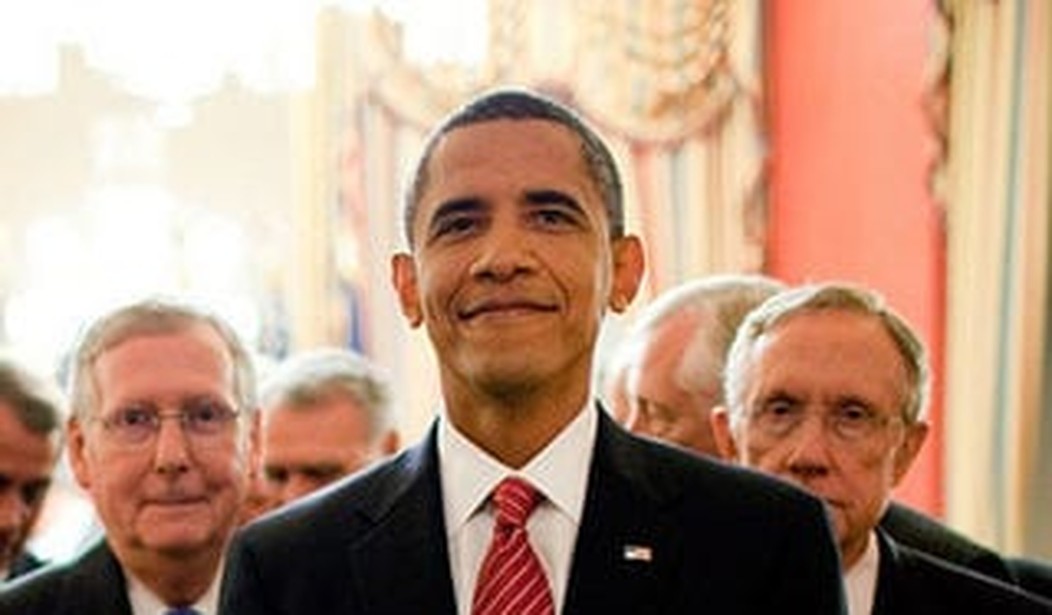WASHINGTON – Reaction to President Obama’s speech to Congress fell along partisan lines as Democrats cheered the president’s willingness to use his executive powers, while Republicans reacted wearily to what they see as a move that will do little to bring together a divided legislature.
Following Obama’s State of the Union address Tuesday night, the National Journal and the Atlantic hosted a panel of lawmakers Wednesday to discuss the president’s speech.
The president told lawmakers that he was “eager to work” with them on proposals that would need congressional approval, but his message was clear: “Wherever and whenever I can take steps without legislation to expand opportunity for more American families, that’s what I’m going to do.”
Sen. Richard Blumenthal (D-Conn.) said he welcomed the president’s use of executive action to push regulations necessary to implement certain laws.
“You can’t enforce a law when the regulations haven’t been promulgated, because the courts will say well, you know, the law hasn’t been fully written yet. The regulations are necessary to spell out the law so it can be filed,” Blumenthal said.
Blumenthal said he had no concerns about the president using his executive authority.
“The president is not in any way seizing legislative authority. He’s not legislating. He’s using authority that the legislature has given him. In fact, I’d make the argument he should have done this a lot sooner,” Blumenthal said.
Sen. Deb Fischer (R-Neb.) said she disagreed that Obama should work around Congress, as Blumenthal suggested.
She said the president took a gamble by threatening to take unilateral action.
“The president needs to work with Congress – that’s the way this country works. And to double down on healthcare; to throw down a gauntlet saying if you don’t agree with me I’m going to go around you. I don’t believe that’s a good start…trying to move forward on important issues,” Fischer said.
The Nebraska Republican urged her Senate colleagues to take action on important issues like approving the Keystone XL pipeline.
“When it comes to energy, the majority of Nebraskans support the Keystone pipeline. My legislative district covered much of the area that the Keystone pipeline’s going to be going through in the state of Nebraska,” Fischer said. “Yes, there are concerns. But Nebraskans, as most Americans, understand the need for that pipeline and the need to look at different sources of energy, so that we’re able to move forward with the needs that we have in this country.”
Fischer said there are many issues where the two parties can work together “and for the president to set that tone at the beginning of a session of Congress that if you don’t agree with me, you don’t have a voice” is “not the way the system of our government is supposed to work.”
Blumenthal said he has seen signs of a “thawing” in Congress on certain issues, such as the budget, foreign policy, flood insurance, and immigration reform. He said the president’s speech had a sense of hope and optimism for action on many of these issues.
“You know the president was simply repeating what we all hear when we go home. The American people want us to get things done. And I think that is the mantra you’re going to hear increasingly and that will lead to more of a thaw,” Blumenthal said.
While he agreed lawmakers from both parties are ready to work on legislation, Rep. Aaron Schock (R-Ill.) said the narrow Republican majority in the House has made it more difficult to govern because “15, 16 members of Congress can become the ex-officio speaker and walk into John Boehner’s office and [refuse to vote on a bill].”
“The challenge is finding legislative priorities that can get both sides to work together. Because at the end of the day even if we pass things out of the House with 218 Republicans, it has to go through a Democrat-controlled Senate,” Schock said.
Schock took a jab at the “more conservative” members of the GOP who took a leading role in the recent government shutdown and the debt ceiling showdowns.
“Like a little kid, you’ve got to teach them: When you touch a hot stove, it’s gonna burn you,” he said, referring to members within the House Republican Conference who were pushing for a government shutdown. “Some of them had to touch the hot stove.”
He said the demands some of these Republicans laid out as a requirement to fund government showed the lack of legislative experience in the GOP.
“Half the Congress wasn’t here when the president first showed up. Half the Congress wasn’t here when healthcare passed. Half the Congress is not used to the institutional process,” Schock said.









Join the conversation as a VIP Member